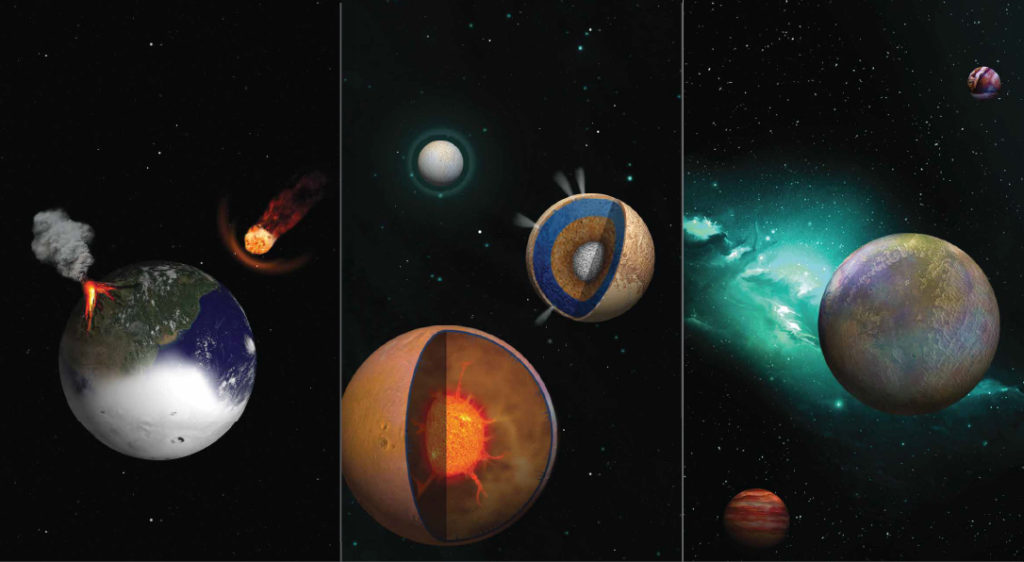Our mission

Our vision is to collaborate across departmental and school/college boundaries to understand where and how habitable zones develop and evolve within planetary systems. This research will integrate planetary dynamics with habitability studies and astrobiology, including the development and persistence of life on Earth and how we would find and recognize life on other worlds.
Our core philosophy is to take an integrative systems science approach to better understand planetary habitability across space and time. We seek to:
- Integrate research across astronomy, geosciences, biochemistry and engineering to study the time evolution of planetary systems.
- Understand planets and moons by treating them as complex systems and quantifying and modeling the interactions between their interior, surface, ocean, atmosphere, biosphere and their interaction with each other and with their host star.
- Start with Earth, planets and moons in our Solar System and extend our geological, geophysical, biochemical, and astrophysical understanding to study the habitability of exoplanets and exomoons.
- Understand and model how boundary and initial conditions such as planetary mass, radius, rotation, stellar flux, elemental constituents, solid Earth (core, mantle, lithosphere), hydrosphere, atmosphere, magnetosphere coupling, and impact processes affect planetary habitability.
- Enable a quantitative approach to assess habitability by investigating the now greatly enhanced array of observed and modeled facets of other planetary systems, many quite different than our own.
- Conduct space mission concept development and engineering support to enable habitability science
- Develop and apply techniques for in-situ spacecraft exploration of the habitability of objects in our Solar System and in orbit around the nearest stars.
- Provide a context for interactions among social scientists, natural scientists, and others to discuss and explore the social and conceptual implications of finding habitable planets.
